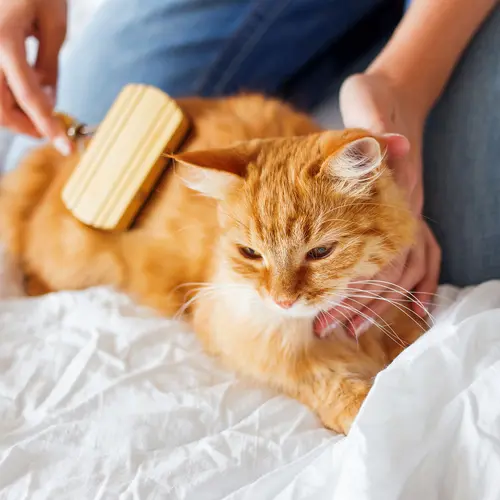The loss of a pet can be a painful experience. For some people, it's like losing a member of the family. While not everyone will understand why this loss hurts so much, there's no reason to be ashamed of the grief you're feeling.
Loss is a personal experience and we all respond to it differently. When your pet dies, you may find it hard to move on because of how attached you were to each other. Or, it could be the circumstances surrounding your pet’s death, their age, and personality. Your emotional pain is a reflection of how important your pet was to you.
The Importance of the Pet-Human Bond
Pets play a major role in our lives. You might not realize it, but pets bring numerous health benefits to their owners. These benefits include:
Lowering stress levels. A pet provides companionship and helps you to reduce stress levels by keeping you engaged in caring.
Fighting off depression. Pets help ease depression and long-term mental health issues by bringing a sense of purpose and meaning to our lives.
Dealing with social isolation and loneliness. When you have a pet, it’s normal to develop a routine around them. This routine provides you with emotional and social support, especially on days when you feel alone and isolated.
Giving you a sense of ownership. Pets have a way of making you feel needed and that you matter because they require you to be there and take care of them.
Increasing your level of physical activity. Exercise is a critical part of your mental health. The more you walk your pet or play with them, the more it improves your physical wellbeing.
Grieving the Loss of a Pet
The cycle of grief starts with denial and continues through anger, bargaining, depression, and finally acceptance. Despite this being the case, grief is as personal as the person who is experiencing it. It can take days for some and years for others. When a beloved pet dies, grief is almost always inevitable. Showing and feeling the intensity of your sorrow can help you come to terms with the loss of your pet.
How to Cope with Grief
Accept your loss. When you're grieving, allow yourself to accept the fact that it's a process that can’t be hurried or put on a timetable. Be patient with yourself and let the process flow naturally.
Embrace the pain and loss. Feeling sad, shocked, or lonely when you remember your pet is a normal reaction. It means you're in touch with your emotions and there’s no reason to feel embarrassed or ashamed when you openly express your grief.
Allow yourself to feel your emotions. For real healing to take place, you have to face your grief at some point, and deal with your loss.
It’s OK not to be OK. Some people may not understand your grief. That's all right. But always remember that your loss is real. Don’t allow yourself or anyone to lessen its importance.
Reach out if you need help to cope. Reach out for support from friends and others who have lost a beloved pet. Their support could be just what you need to start your healing journey.
Embrace memories of your pet. Remember both the sad and happy memories you had with your lost friend. Allow your pet to live on in your heart. This process may be difficult, so take as much time and as many small steps as you need.
Take care of yourself. Remember to be kind to yourself and take care of your emotional and physical needs.
Allow your child to grieve. The loss of a pet can be your child’s first experience with death. How you handle the loss of a pet and your child’s grief will determine if your child will want another pet in the future and how they'll bond with the new companion.
Be honest with your child. By expressing your grief, you allow your child to deal with their feelings, giving them the room to grieve, too.
How Soon Should You Get a New Pet?
After the loss of a beloved pet, you may wonder about when or if you're ready to get a new one. To help you decide whether you're ready or not, ask yourself the following questions:
Have you come to terms with the loss of your pet? Replacing your pet with another that looks exactly like your previous one won’t fill the void you may be feeling. But dealing with the loss of your pet can put you in a better frame of mind to eventually get another animal companion.
Are all the family members ready to welcome a new pet to the family? As previously mentioned, grieving is personal for everyone. Think of other family members taking on a new pet. Some family members may be still grieving. A new pet may feel like you’re diminishing their loss.
Do all your family members agree on the best time to get a new pet? When all family members agree, this means you have respected their feelings, and it lessens the chances of resentment of the new pet.
Are you ready to take on the responsibility of a new pet? When you get a new pet, you need an adjustment period. This can be challenging, so it's important to be sure you're ready for all the responsibilities that come with a new pet.

